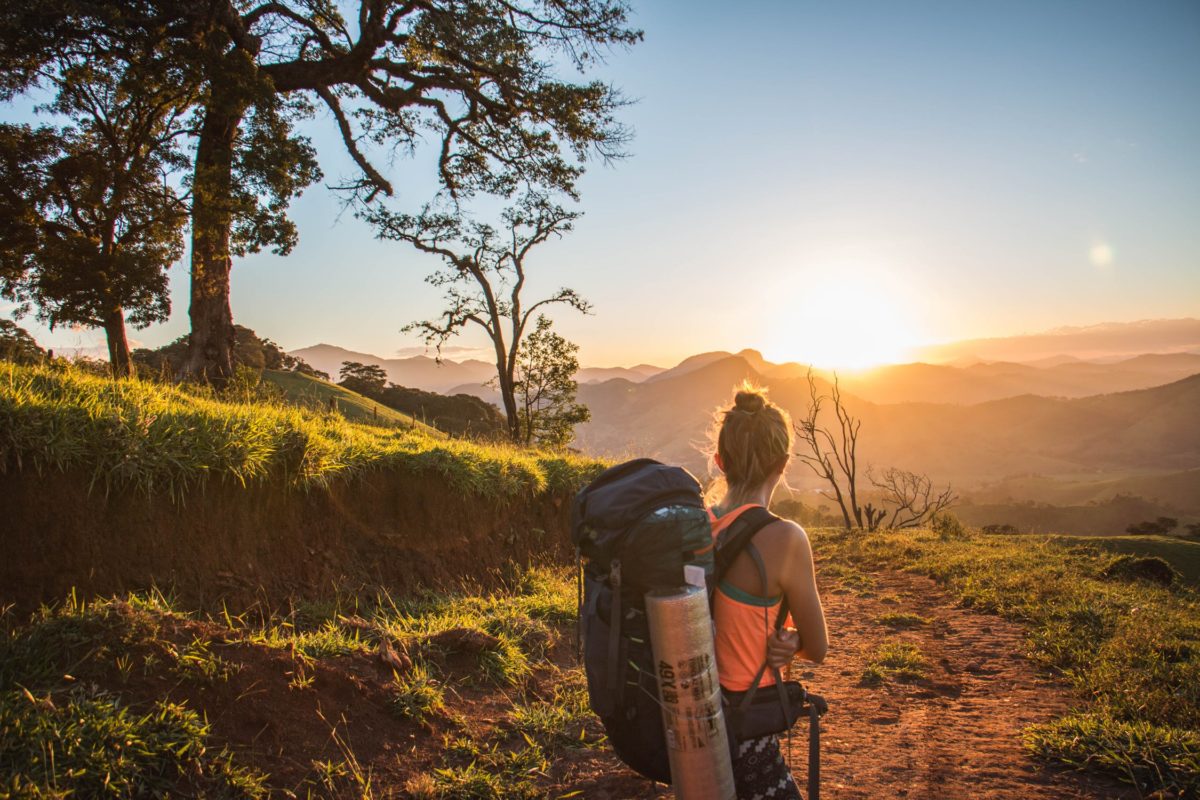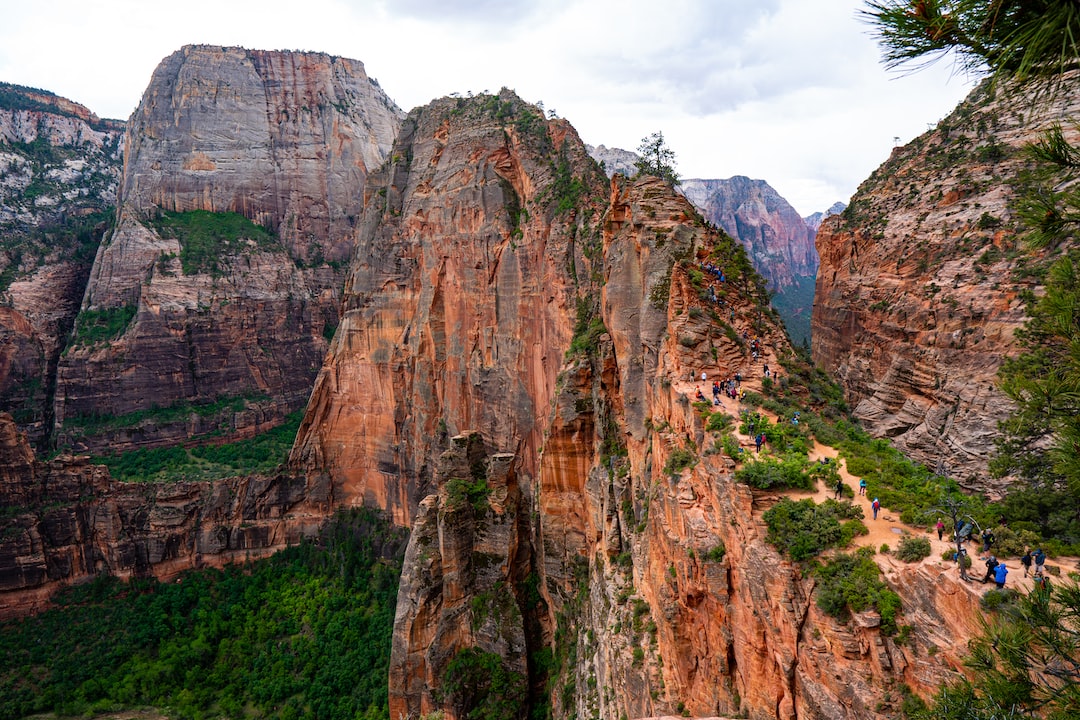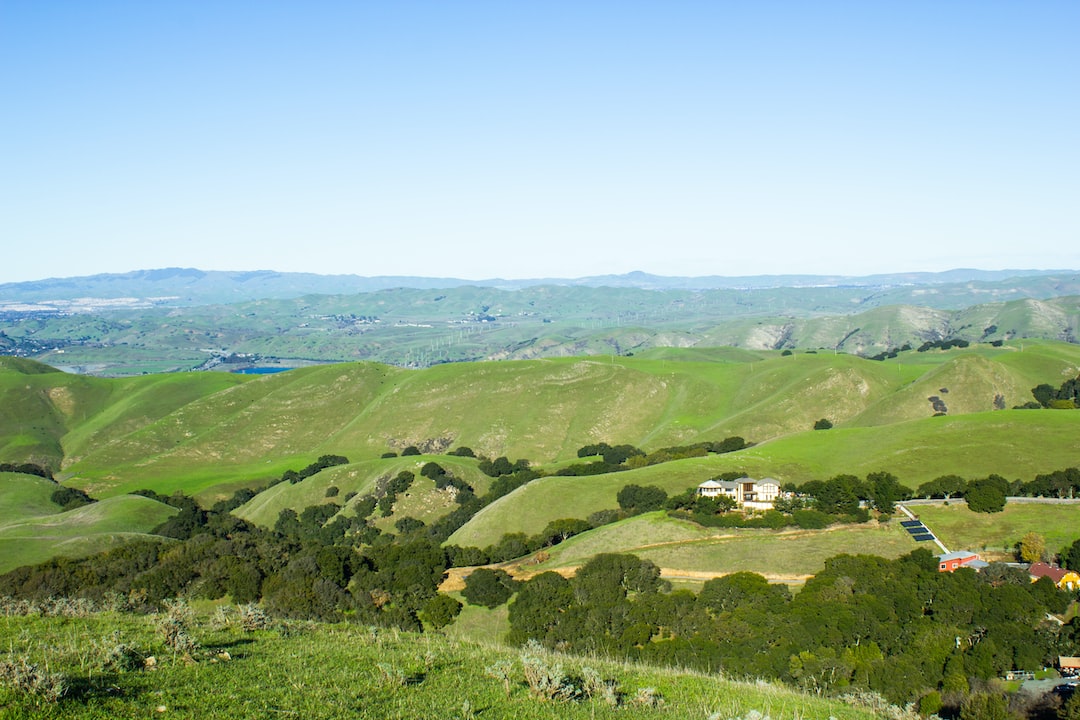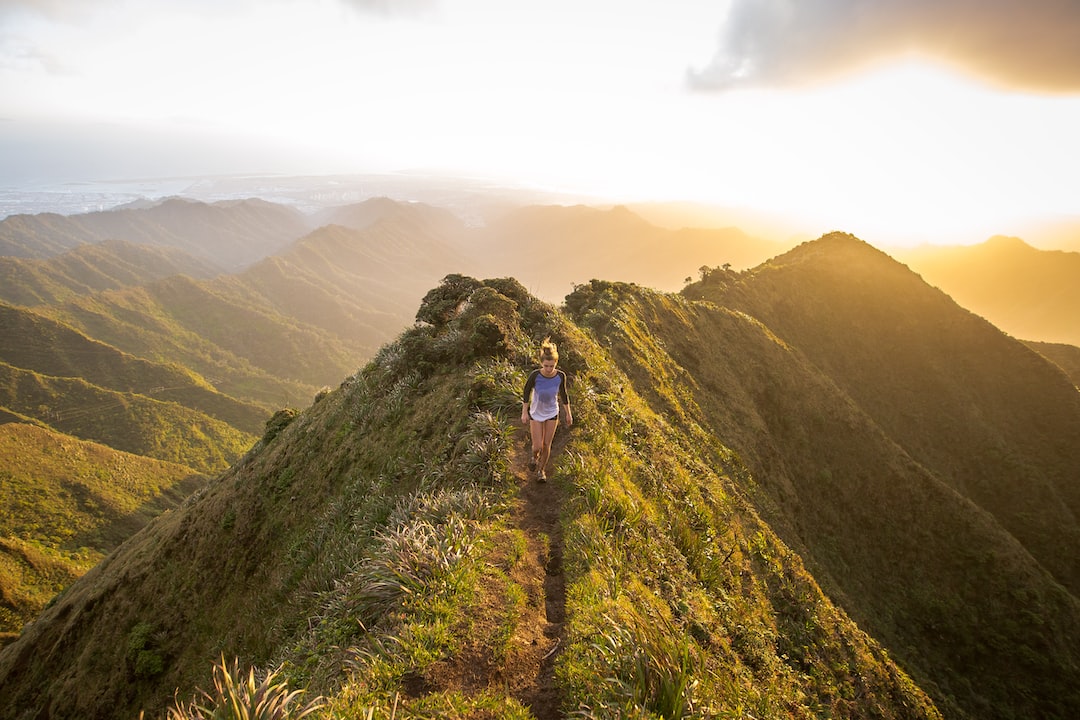Heading out for a weekend backpacking or a day trek and wondering if your pack is too heavy? There is no one predetermined pack weight but here are the general weight guidelines you should aim for:
Your loaded backpack should not weigh more than 20 percent of your body weight. So if you weigh 80kg then you would want to keep you pack weighing under 16kg. For day hiking aim for just 10 percent of your body weight.
Lots of factors go into your pack weight – depending on how long your trip is, how much water you have to carry and the individual weight of your gear and backpack. I’ll explore these in more detail below, but first, let’s explore the ideal pack weight.
Ideal Pack Weight for Backpacking & Hiking
If you’re looking for specific pack weight recommendations then these are a good rule of thumb to follow.
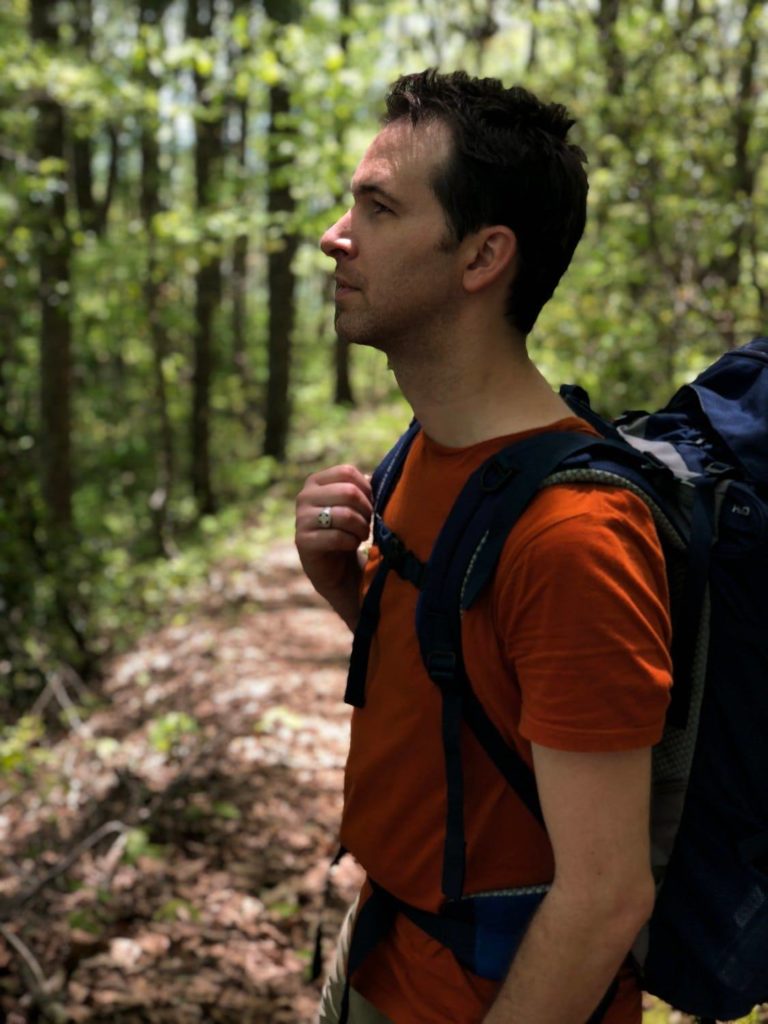
Backpacking Weight – Multiple Days
- Your loaded backpack should weigh no more than 20% of your body weight. For example, if you weigh 80kg then your pack should not be more than 16kg in weight.
Hiking Weight – One day
- Your loaded day hiking pack should weigh no more than 10% of your body weight. For example, if you weigh 80kg, then your pack should not be more than 8kg.
These bodyweight percentages should be used as a guide and are designed to keep your pack weight down to manageable levels.
Factors that effect pack weight
1. Your base weight
Your backpacks base weight is the weight of all your gear minus the food, water and fuel. Many hikers measure their pack weight using the base weight because food and water are variables depending on the length of the trip – whereas the base weight for most trips will be the same.
If you can focus on reducing your base weight by upgrading to lighter gear and only bringing the essentials then you’ll have a pack that weighs less and a more comfortable, less fatiguing trip.
2. Trip Duration
The longer your trip, the more water and food you’ll need to fuel your adventure. If there are stop off point en route to collect water and replenish your food stores, then you can plan your packing around this stops. Just be aware that water sources dry up in the summer so always carry extra.
3. The weather
In warm climates, you need little more than a shirt and shorts and staying warm is not a survival issue. Generally the colder the weather gets, the more gear you need to have. Insulation weighs more and heavier and bulkier jackets and rain gear may dramatically increase your pack weight. You’ll also need a few more extra calories to maintain body heat in colder weather.
4. Water needs
If your hiking through deserted areas or in the summer months where there are no reliable water sources to collect and filter water on the way – then your pack weight is going to shoot up as a necessity. You’ll need to be carrying more water. 1 liter of water weighs 1kg and the average hiker may drink between 0.5-1 liter (2-4 cups) per hiking hour. I wrote about how much water to bring here.
5. Your hiking style
For some hikers, the extra joy they get out of having one particaular luxury item with them is worth the extra weight. For others who see out weight saving at all costs, it’s only the bare essentials that make it into their pack.
No matter your hiking style and your unique preferences, there are some who simply overpack and bring too much stuff.
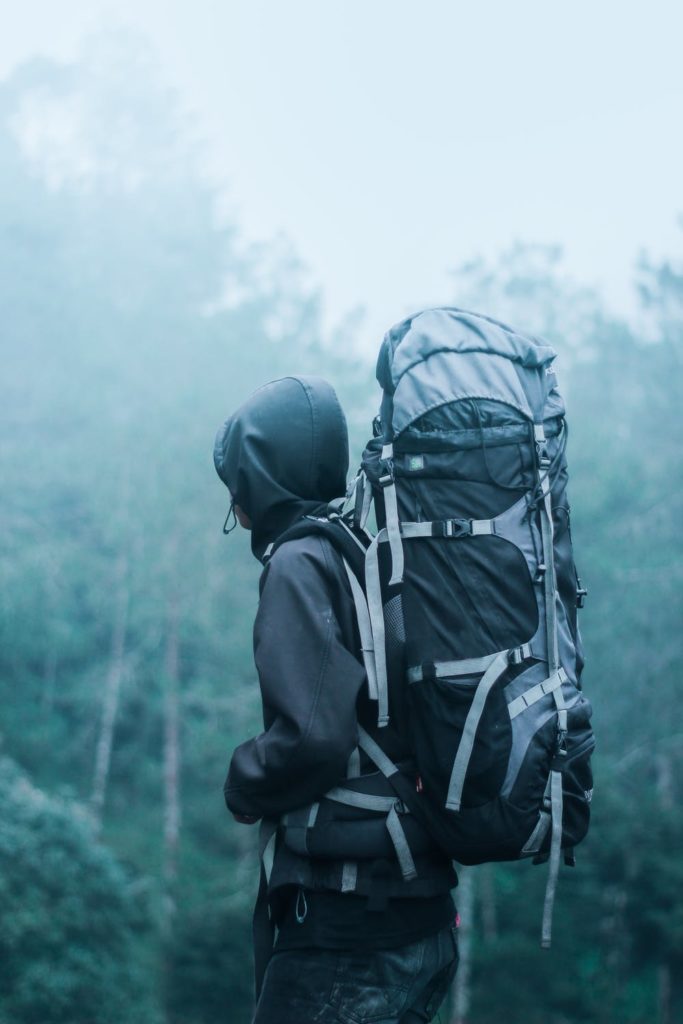
Overpacking & The Essentials
There are two mistakes you can make; overpack too much stuff which will lead to excessive weight and faster fatigue or not packing enough and be caught out with not enough water or the right clothing for the weather.
Overpacking
Many first-time backpackers will load up their backpacks with everything they think they might need, from guidebooks to extra hats and camping stools. It’s until they hit the trail that they realize they’ve over-burdened themselves with a ridiculously heavy pack. At this point, it’s too late – unless you head back to the car to drop some stuff off!
Usually, from experience, you learn to pack only what you will use and nothing more. An item on its own might weigh only a few grams, but the weight quickly builds and it is easy to end up with a pack that is simply too heavy.
The best way to pack your backpack is methodically and with a clear intention – only bring the items you need. Another way to keep weigh down is to invest in lightweight gear. The biggest areas to save weight are in your tent, sleeping bag and the amount of water you carry (water is crucial for survival and so always bring extra – but you can save weight by using a portable water filter and collecting water en route.)
Underpacking
Underpacking can be an issue for some new hikes who hit the trail without enough equipment. At a minimum, you need enough gear for survival. This includes but is not limited to:
- Clean drinking water.
- Enough calories to sustain energy.
- Protection from the cold or rain (shelter like a tent or bivy bag).
These are the bare essentials for survival and extra items like a headlamp and the right footwear are also going to make a massive difference to your enjoyment in the backcountry.
The Ten Essentials
Are the essential you need to hike safely and enjoy your time in the outback;
- Navigation: map compass or GPS etc.
- Headlamp: plus extra batteries.
- Sun protection: sunglasses, sun-protective clothes and sunscreen
- First aid: including athletic tape for blisters and insect repellent for mosquitoes.
- Knife: plus a small repair kit.
- Fire: lighter, matches, flint and/or a stove.
- Shelter: emergency bivvy and/or a tent.
- Enough food: You need enough calories to give you energy.
- Enough water: Bring a backup portable water filter.
- Extra clothing: Stay warm and protected from the sun.
How to Reduce Pack Weight
Now that we know the limits of how much our pack should weigh and the essential items we’ll likely need – let’s run over what we can do to reduce our overall pack weight.
- Dry out your gear
- Multi-purpose gear
- Eliminate duplicates
- Plan your trip around water sources
- Split weight between packs
1. Dry out your gear
Wet gear weighs much more compared to when it is dry. If your clothes are wet, leave them out to dry before bundling them away. There is no need to carry all that extra moisture.
If an item of clothing is wet and you need to set off from camp, then drape it over your backpack so it can dry in the wind as you walk.
2. Multi-purpose gear
Using gear for multiple purposes wherever possible is a great way to save weight. One method is to use your hiking pole as a tent pole (only works with some tents).
3. Eliminate duplicates
For most backpacking trips, you don’t need as much clothing as you might first think. One pair of each item is usually enough. Duplicates of socks and underwear and a backup top is all you will likely need for a multi-day trip in warm weather. Always bring a raincoat or bivy pack to provide protection from the wind and cold in case of an emergency.
4. Plan your trip around water sources
Water is one of the heaviest items you’ll be carrying, so whenever possible plan your hike around reliable water sources so that you can replenish your stocks as you go. Rather than carrying all your water at once, drink plenty beforehand and carry what you need until the next water source.
To filter out bacteria, protozoa and particles, bring a portable water filter or purifier with you. These ingenious systems use hand pumps or gravity to push water through filters, making it safe for drinking.
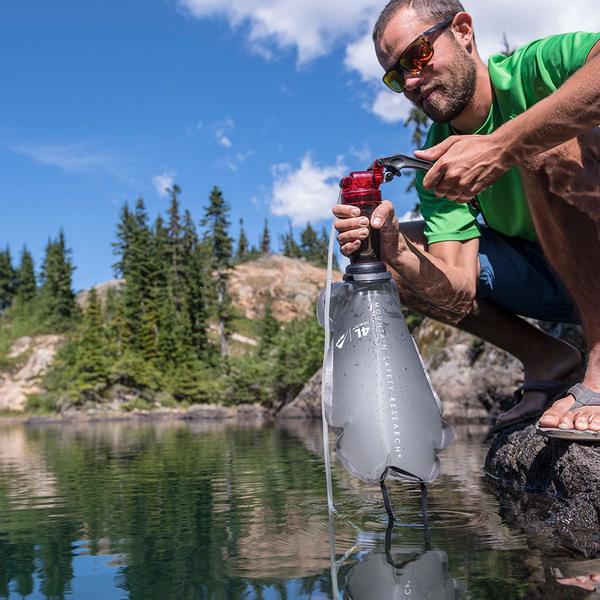
5. Split weight between packs
Typically hikers share tents and stoves between one another. In this case, make sure you distribute the weight fairly so that you can take the burden of just one person. For tents, you can split up the poles and the main structure. For backpacking stoves you can split up the pots and the fuel.
Bonus: Remove your stuff packs
This one is for the ultra-minimalist: Tents and sleeping bags come with stuff packs which are pretty useful for keeping your stuff organized. But if you’re looking to save an extra 50 grams and don’t mind stuffing your gear into your backpacks with a bit more effort – then ditching the sacks might be worth doing.

